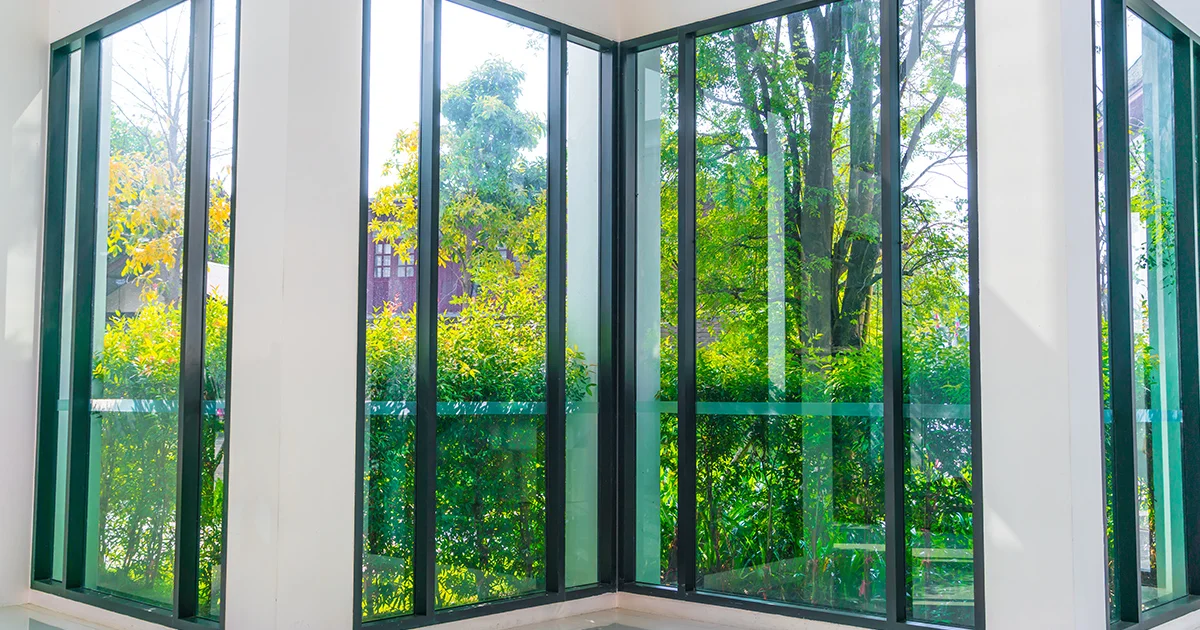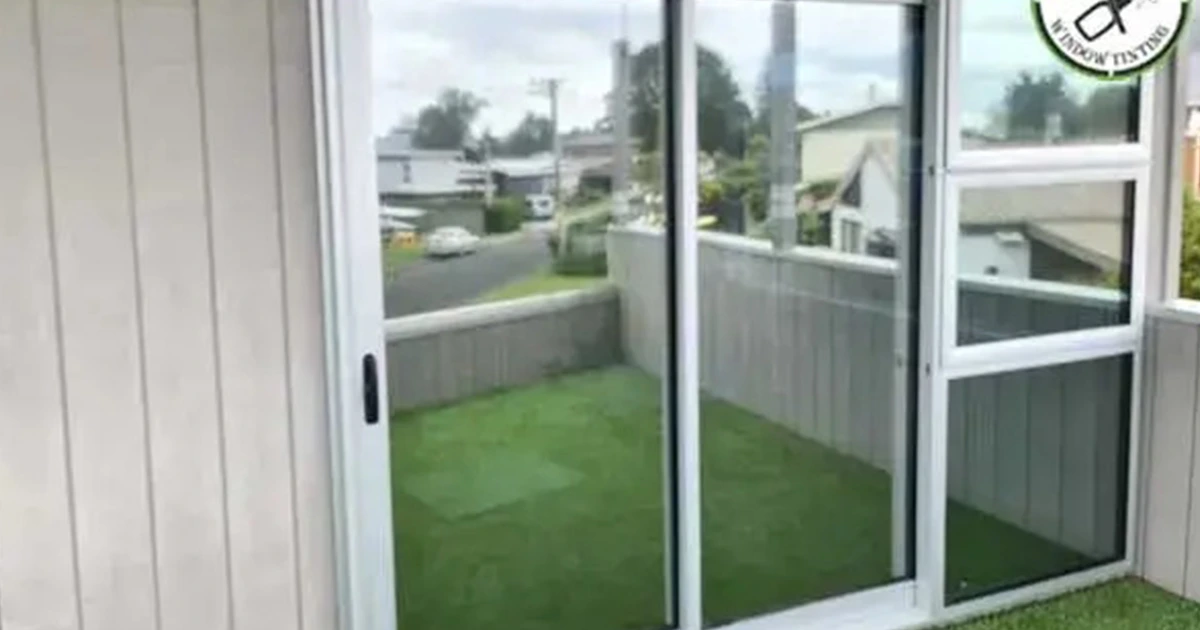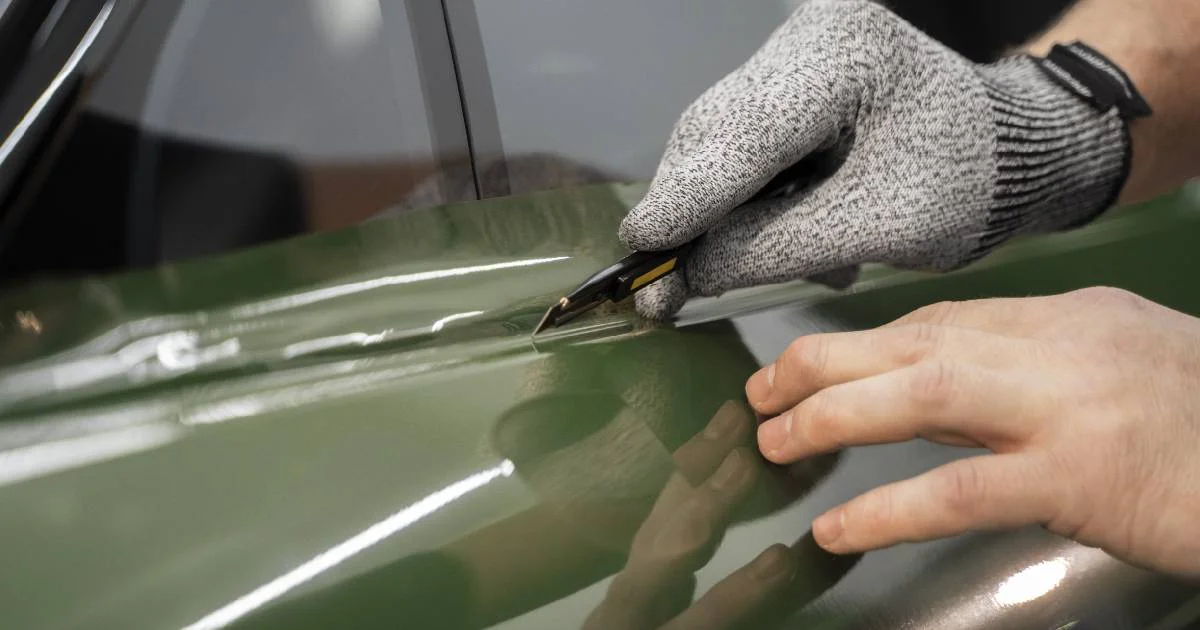
How to Choose the Right Window Tint for Your Home in 2023
23 Oct 2023, By AdminIn the world of home improvement, one often overlooked but highly beneficial upgrade is home window tinting. As we step into 2023, the demand for window tinting solutions has grown significantly, driven by increased awareness of their advantages. Whether you're looking to enhance privacy, reduce energy costs, or protect your furnishings from harmful UV rays, choosing the right window tint for your home is crucial. In this guide, we'll explore the key factors to consider when selecting the perfect window tint for your home in 2023.
1. Identify Your Goals
Before diving into the world of window tinting, it's essential to determine your specific goals. Why do you want window tinting for your home? Common reasons include:
- Privacy: Do you want to prevent prying eyes from peering into your living spaces?
- Energy Efficiency: Are you looking to reduce your energy bills by blocking out heat in the summer and retaining warmth in the winter?
- UV Protection: Do you want to safeguard your furniture, flooring, and artwork from harmful UV rays that can cause fading?
- Glare Reduction: Is glare from the sun or nearby buildings affecting your comfort while working or relaxing indoors?
Knowing your objectives will help you choose the right type of window tint to fulfill your needs.
2. Understand Different Types of Window Tints
In 2023, there are various types of window tints available, each with its unique features and benefits. Some of the most common options include:
- Solar Control Films: These tints are designed to reduce heat and glare, making your home more comfortable and energy-efficient. They can also block a significant portion of harmful UV rays.
- Privacy Films: These tints provide enhanced privacy during the day while allowing you to see out. They are perfect for homes with large windows or those in close proximity to neighbors.
- Decorative Films: If you want to add a touch of style to your windows, decorative films come in various patterns and designs. They can provide privacy and aesthetics simultaneously.
- Security Films: These films are designed to strengthen windows and make them more resistant to break-ins and accidents. They can be a valuable addition to your home's security system.
- UV-Blocking Films: If preserving the color and integrity of your furnishings is a priority, UV-blocking films are an excellent choice. They significantly reduce the harmful effects of UV rays on your interior decor.
3. Consider Local Regulations
Before you proceed with window tinting, it's crucial to check your local regulations and building codes. Some areas may have restrictions on the type or darkness of window tint allowed, especially for front-facing windows. Compliance with local laws ensures you avoid potential fines or complications.
4. Evaluate Tint Performance
When choosing a window tint, pay attention to its performance metrics, including:
- Visible Light Transmission (VLT): This measures the amount of visible light that can pass through the tint. A lower VLT means less light passes through, which can be helpful for glare reduction and privacy.
- Solar Heat Gain Coefficient (SHGC): This metric indicates how much heat the tint can block. Lower SHGC values are better for reducing heat gain during hot months.
- U-Factor: This measures how well the tint insulates your windows. A lower U-factor indicates better insulation, which is crucial for energy efficiency.
5. Seek Professional Installation
While some homeowners may attempt DIY window tinting, it's usually recommended to hire professionals. They have the expertise and equipment to ensure a proper installation that maximizes the benefits of your chosen tint.
6. Request Samples and Consultations
Before making your final decision, request samples of the window tints you're considering. This will allow you to see how they look in your home's lighting conditions and how well they meet your objectives. Additionally, consult with window tinting experts who can provide advice tailored to your specific needs.
In conclusion, home window tinting in 2023 is a versatile and practical solution for enhancing comfort, privacy, and energy efficiency in your home. By understanding your goals, exploring different types of tints, and considering local regulations, you can make an informed choice that brings both aesthetic and functional benefits to your living space. With professional installation and careful consideration, you'll enjoy the advantages of window tinting for years to come.

Home Window Tinting: What Is It and How Much Does It Cost?
23 Oct 2023, By AdminAs homeowners seek innovative ways to improve comfort, energy efficiency, and privacy, home window tinting has become a popular solution. But what exactly is home window tinting, and how much does it cost? In this blog, we’ll dive into the benefits, process, and pricing of this transformative home upgrade.
What is Home Window Tinting?
Home window tinting involves applying a thin, durable film to the interior or exterior of your windows. The film is designed to reduce heat, glare, and UV rays while offering privacy. While window tinting is commonly associated with cars, it has gained popularity for residential applications due to its ability to enhance energy efficiency and protect home interiors.
Types of Window Tinting Films:
- Solar Control Films: Reduce heat and glare, keeping your home cooler in the summer and reducing energy costs.
- Security Films: Provide added protection by making glass more difficult to break, preventing potential intrusions.
- Decorative Films: Offer an aesthetic appeal with frosted or colored designs that add privacy without sacrificing style.
- UV Blocking Films: Block up to 99% of harmful UV rays, helping to protect furniture, floors, and artwork from fading.
Benefits of Home Window Tinting
- Energy Efficiency: One of the key advantages of home window tinting is its ability to lower energy bills. By blocking heat from entering your home during the summer and insulating windows during the winter, your HVAC system doesn’t have to work as hard to maintain a comfortable temperature.
- UV Protection: Prolonged exposure to UV rays can damage your skin and fade your furniture and flooring. Tinted windows can block a significant portion of UV rays, safeguarding your home and family.
- Privacy: Tinted windows offer enhanced privacy by limiting the view into your home from the outside, making it difficult for people to see inside during the day.
- Reduced Glare: Home window tinting can significantly cut down on glare, improving comfort while watching TV, using computers, or simply relaxing.
- Security: Security films make windows harder to break, adding a layer of protection against intruders and severe weather.
How Much Does Home Window Tinting Cost?
The cost of home window tinting depends on several factors, including the size and number of windows, the type of film you choose, and the complexity of the installation. Here’s a general breakdown:
- Cost Per Square Foot: Home window tinting typically ranges from $5 to $15 per square foot. High-end or specialized films, such as security or decorative films, can be on the higher end of this range.
- Installation Costs: Installation costs vary depending on the difficulty of the project. Professional installation ensures a smooth, bubble-free application and can range from $150 to $400 per window. Large or uniquely shaped windows may cost more due to the complexity of the installation.
- DIY vs. Professional Installation: While DIY window tinting kits are available and can be a more affordable option (around $2 to $4 per square foot), they often lack the quality and durability of professional-grade films. A DIY job also carries the risk of errors, such as bubbles or peeling, which may result in additional costs down the line.
Factors Affecting the Cost of Home Window Tinting
- Window Size and Quantity: The more windows you have, the more the project will cost. Larger windows also increase costs due to the additional material and time required.
- Film Type: The specific type of film you choose impacts the price. Decorative, security, or UV-blocking films are usually more expensive than basic solar films.
- Location: Installation costs can vary depending on your geographic location and the availability of professional services.
- Additional Features: Some window films offer extra benefits like anti-glare or energy efficiency, which may come at a higher cost.
Is Home Window Tinting Worth the Investment?
Given the benefits of energy savings, enhanced privacy, and UV protection, home window tinting can be a smart investment for homeowners. In regions with extreme heat or cold, the energy savings alone can offset the initial cost over time. Additionally, the long-term benefits of protecting your furniture and reducing the risk of break-ins make it a valuable home improvement option.
Home window tinting is a cost-effective way to improve energy efficiency, privacy, and security in your home. While prices can vary depending on your specific needs, the long-term benefits make it a worthwhile investment for many homeowners. Whether you opt for professional installation or a DIY approach, window tinting offers a range of solutions to enhance your living space.
If you’re considering tinting your home’s windows, get quotes from local professionals to determine the best options for your budget and needs.

How to Choose the Right Window Tint for Your Home in 2023
23 Oct 2023, By AdminIn the world of home improvement, one often overlooked but highly beneficial upgrade is home window tinting. As we step into 2023, the demand for window tinting solutions has grown significantly, driven by increased awareness of their advantages. Whether you're looking to enhance privacy, reduce energy costs, or protect your furnishings from harmful UV rays, choosing the right window tint for your home is crucial. In this guide, we'll explore the key factors to consider when selecting the perfect window tint for your home in 2023.
1. Identify Your Goals
Before diving into the world of window tinting, it's essential to determine your specific goals. Why do you want window tinting for your home? Common reasons include:
- Privacy: Do you want to prevent prying eyes from peering into your living spaces?
- Energy Efficiency: Are you looking to reduce your energy bills by blocking out heat in the summer and retaining warmth in the winter?
- UV Protection: Do you want to safeguard your furniture, flooring, and artwork from harmful UV rays that can cause fading?
- Glare Reduction: Is glare from the sun or nearby buildings affecting your comfort while working or relaxing indoors?
Knowing your objectives will help you choose the right type of window tint to fulfill your needs.
2. Understand Different Types of Window Tints
In 2023, there are various types of window tints available, each with its unique features and benefits. Some of the most common options include:
- Solar Control Films: These tints are designed to reduce heat and glare, making your home more comfortable and energy-efficient. They can also block a significant portion of harmful UV rays.
- Privacy Films: These tints provide enhanced privacy during the day while allowing you to see out. They are perfect for homes with large windows or those in close proximity to neighbors.
- Decorative Films: If you want to add a touch of style to your windows, decorative films come in various patterns and designs. They can provide privacy and aesthetics simultaneously.
- Security Films: These films are designed to strengthen windows and make them more resistant to break-ins and accidents. They can be a valuable addition to your home's security system.
- UV-Blocking Films: If preserving the color and integrity of your furnishings is a priority, UV-blocking films are an excellent choice. They significantly reduce the harmful effects of UV rays on your interior decor.
3. Consider Local Regulations
Before you proceed with window tinting, it's crucial to check your local regulations and building codes. Some areas may have restrictions on the type or darkness of window tint allowed, especially for front-facing windows. Compliance with local laws ensures you avoid potential fines or complications.
4. Evaluate Tint Performance
When choosing a window tint, pay attention to its performance metrics, including:
- Visible Light Transmission (VLT): This measures the amount of visible light that can pass through the tint. A lower VLT means less light passes through, which can be helpful for glare reduction and privacy.
- Solar Heat Gain Coefficient (SHGC): This metric indicates how much heat the tint can block. Lower SHGC values are better for reducing heat gain during hot months.
- U-Factor: This measures how well the tint insulates your windows. A lower U-factor indicates better insulation, which is crucial for energy efficiency.
5. Seek Professional Installation
While some homeowners may attempt DIY window tinting, it's usually recommended to hire professionals. They have the expertise and equipment to ensure a proper installation that maximizes the benefits of your chosen tint.
6. Request Samples and Consultations
Before making your final decision, request samples of the window tints you're considering. This will allow you to see how they look in your home's lighting conditions and how well they meet your objectives. Additionally, consult with window tinting experts who can provide advice tailored to your specific needs.
In conclusion, home window tinting in 2023 is a versatile and practical solution for enhancing comfort, privacy, and energy efficiency in your home. By understanding your goals, exploring different types of tints, and considering local regulations, you can make an informed choice that brings both aesthetic and functional benefits to your living space. With professional installation and careful consideration, you'll enjoy the advantages of window tinting for years to come.

10 Things You Should Know Before Car Wrapping
23 Oct 2023, By AdminIn the world of vehicle customization, car wrapping has become increasingly popular. Whether you're looking to give your car a fresh new look or advertise your business on the go, car wrapping offers a versatile and affordable solution. However, before diving into the world of vinyl wraps, there are several key factors to consider. In this blog post, we'll explore 10 things you should know before car wrapping.
- Car Wrapping: Car wrapping involves applying a vinyl film to the exterior of a vehicle. This film can come in a variety of colors, finishes, and textures, allowing for endless customization options.
- Temporary Transformation: Unlike paint, car wraps are not permanent. They can be easily removed without damaging the vehicle's paint underneath. This makes car wrapping an ideal option for those who like to change up their car's appearance frequently.
- Cost Considerations: While car wrapping is generally more affordable than a custom paint job, it's still an investment. The cost can vary depending on the size of the vehicle, the complexity of the design, and the quality of the vinyl used.
- Quality Matters: Opting for high-quality vinyl and professional installation is crucial for a long-lasting and visually appealing wrap. Cheaper materials may fade or peel over time, detracting from the overall look of your vehicle.
- Surface Preparation: Proper surface preparation is essential for a successful car wrap. The vehicle's exterior must be thoroughly cleaned and free of any dirt, wax, or debris that could affect adhesion.
- Durability and Maintenance: A well-installed vinyl wrap can last several years with proper care. However, it's essential to follow manufacturer recommendations for maintenance, which may include avoiding harsh chemicals and abrasive cleaning methods.
- Design Considerations: When designing your car wrap, consider factors such as visibility, readability (for advertising wraps), and overall aesthetic appeal. Work closely with your designer to ensure your vision is accurately translated onto the vehicle.
- Legalities and Regulations: Before applying a car wrap, familiarize yourself with local laws and regulations regarding vehicle modifications. Certain colors or designs may be restricted, especially for commercial vehicles.
- DIY vs. Professional Installation: While DIY car wrapping kits are available, professional installation is often recommended for the best results. Professional installers have the experience and expertise to ensure a seamless finish and minimize the risk of errors.
- Removal Process: When the time comes to remove your car wrap, it's essential to do so carefully to avoid damaging the underlying paint. Professional removal services can help simplify this process and ensure a smooth transition back to the vehicle's original appearance.
In conclusion, car wrapping offers a convenient and customizable way to transform your vehicle's appearance. By understanding these key considerations before diving into a car wrapping project, you can ensure a successful outcome that enhances the look and value of your vehicle. Whether you're looking to make a statement on the road or promote your business, a professionally installed car wrap can help you achieve your goals with style and versatility.
